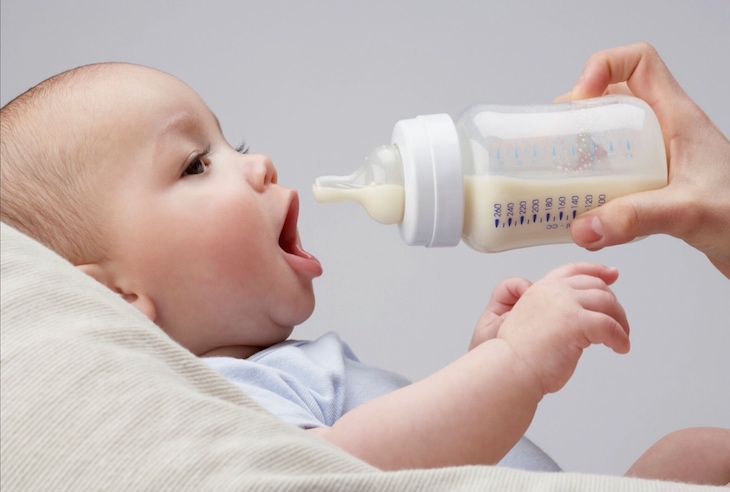What are the symptoms of a Cronobacter sakazakii infection? This relatively unknown pathogen can cause serious illness and death in infants, especially those who are fed powdered infant formula. While Cronobacter infections are rare, they can be deadly for infants and also can be serious among the elderly and people with compromised immune systems.

Because Cronobacer infections are not reportable conditions in any state except Minnesota, the number of these illnesses that occur every year are not known. This pathogen is not tracked because it is does not cause serious illness in the general population. The CDC usually receives reports of two to four infections in infants per year. But a 2002 FoodNet survey found that invasive Cronobacter infections occur at a rate of one per 100,000 infants under the age of one year and at 8.7 per 100,000 in low birth weight infants.
In babies who are younger than one year, Cronobacter can cause severe meningitis or sepsis. Meningitis is the inflammation of protective membranes around the brain and spinal cord. And sepsis is a blood infection. Both are considered life-threatening emergencies in infants.
In people of all ages, Cronobacter can cause wound infections or urinary fact infections. People with compromised immune systems can develop sepsis.
Cronobacter Issues with Powdered Infant Formula
One of the issues with this pathogen is that powdered infant formula is not sterile. In fact, manufacturers say that it is not possible to produce sterile powdered infant formula. The pathogen can survive in desiccated materials, in low acid foods, and in foods with a high salt content. The formula can also become contaminated during handling in homes.
In 2001, a fatal Cronobacter outbreak occurred at a neonatal intensive care unit in Tennessee among infants who were fed powdered formula. (At the time this pathogen was called Enterobacter sakazakii.) Ten infants were sickened, and one baby died. That was the first report of a Cronobacter infection associated with infant formula that prompted the recall of a commercial product in the U.S.
In 2011, Cronobacter infections among infants were reported from Missouri, Florida, Oklahoma, and Illinois. An infant from Missouri died from Cronobacter. The pathogen was found in infant formula, a bottle of nursery water, and the serving container. In Florida, an infant died of Cronobacter, but the strain of that case “could not be obtained.” The strains from the Missouri and Illinois cases were gathered but not genetically related to the strains isolated from the reconstituted formula.
And in 2021, four infants were sickened with Cronobacter or Salmonella infections after being fed certain lots of Similac, EleCare, and Alimentum powdered formula. One baby died, although the FDA has not determined if Cronobacter caused that death.
Symptoms of a Cronobacter Sakazakii Infection
Symptoms of a Cronobacter infection in adults include foot ulcers, wound infections, sepsis, pneumonia, and inflammation of the bone and bone marrow.
Cronobacter infection symptoms in infants begin with a fever, crying, very low energy, and poor feeding. The symptoms of meningitis or sepsis in infants include grunting breaths, pale skin, rapid breathing or breathing difficulty, unusual cry, fever, refusing food, stiff, jerky movements, a floppy body, cold hands and feet, blood in the stool, vomiting, and jaundice. Any infant experiencing any of these symptoms must see a doctor immediately.

If your infant has been sickened with a Cronobacter or Salmonella infection after feeding him or her powdered infant formula, please contact our experienced attorneys for help at 1-888-377-8900 or text us at 612-261-0856. Our firm represents clients in lawsuits against grocery stores and food processors, and families in wrongful death cases.




